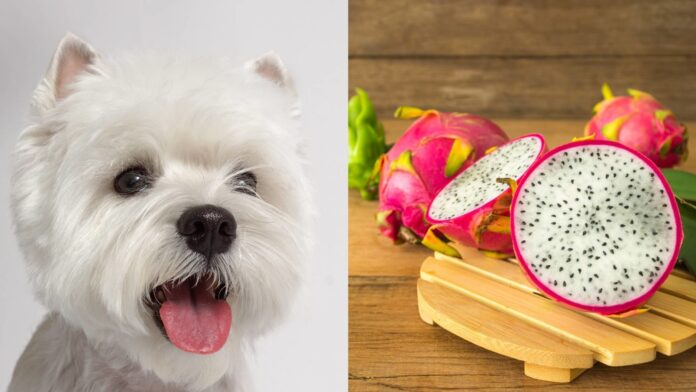Are you wondering if your furry friend can share in your exotic fruit adventures? As a pet parent, I’ve asked myself “can my dog eat dragon fruit” countless times while enjoying this vibrant superfood The quick answer is yes – dogs can safely eat dragon fruit in moderation!
What Makes Dragon Fruit Special?
Dragon fruit also known as pitaya is a stunning tropical fruit that looks as magical as its name suggests. This exotic treat isn’t just Instagram-worthy – it’s packed with nutrients that could benefit your pup too!
Benefits of Dragon Fruit for Dogs
When it comes to treating your four-legged friend, it’s essential to make informed choices As discussed in various dog nutrition articles at Pet like boss, proper diet plays a crucial role in maintaining your pet’s health Here’s why dragon fruit might be a pawsome addition to your dog’s treat rotation
- Low in Calories
- Perfect for weight-conscious pups
- Great alternative to processed treats
- Helps maintain healthy weight
- Rich in Nutrients
- High in fiber
- Loaded with antioxidants
- Contains vitamins C and B
- Good source of iron
- Provides magnesium
- Hydration Benefits
- High water content (around 85%)
- Helps keep your dog hydrated
- Refreshing summer treat
How to Serve Dragon Fruit to Your Dog
Before you rush to share this exotic treat with your furry friend, check out these serving tips (you can find more detailed nutrition guides in our dog section):
- Preparation Steps:
- Wash thoroughly
- Remove skin completely
- Cut into small, manageable pieces
- Remove any seeds (optional – they’re safe but might cause tummy troubles)
- Serving Suggestions:
- Start with small portions
- Mix with regular food
- Freeze for a cool summer treat
- Use as training rewards
Precautions and Considerations
While dragon fruit is generally safe for dogs, there are some things to keep in mind:
- Portion Control
- Start with tiny amounts
- Monitor for reactions
- Limit to occasional treats
- Possible Side Effects
- Tummy upset if overfed
- Mild diarrhea
- Temporary pink-colored poop (don’t panic!)
- When to Avoid
- If your dog has diabetes
- Known fruit allergies
- Sensitive stomach
Creative Ways to Serve Dragon Fruit
Make treating time fun with these pawsome ideas:
- Frozen Dragon Fruit Pops
- Blend dragon fruit
- Pour into ice cube trays
- Freeze and serve
- Dragon Fruit Training Treats
- Dehydrate small pieces
- Use as high-value rewards
- Perfect for summer training
- Mixed Fruit Salad
- Combine with other safe fruits
- Add to regular meals
- Make a special occasion treat
Signs Your Dog Enjoys Dragon Fruit
Watch for these happy signals:- Eager tail wagging- Gentle taking of treats- Coming back for more- No digestive issues
When to Contact Your Vet
Keep an eye out for:- Vomiting- Severe diarrhea- Allergic reactions- Unusual behavior
Final Thoughts
Dragon fruit can be a healthy, exciting addition to your dog’s treat menu. Just remember to:- Introduce slowly- Monitor reactions- Keep portions small- Make it fun!
FAQs About Dogs and Dragon Fruit
Q: How much dragon fruit can I give my dog?A: Start with small pieces (1-2 chunks) and observe their reaction.
Q: Can puppies eat dragon fruit?A: Yes, but introduce very slowly and in tiny amounts.
Q: Is the skin safe?A: No, always remove the skin before serving.
Q: How often can I give dragon fruit to my dog?A: 1-2 times per week as a treat is plenty.
Q: What if my dog eats too much dragon fruit?A: They might experience digestive upset – contact your vet if concerned.
Remember, every dog is different, and what works for one might not work for another. Always observe your furry friend’s reactions when introducing new foods, and don’t hesitate to consult with your veterinarian if you have concerns.
While dragon fruit can be a healthy treat option, it shouldn’t replace your dog’s regular balanced diet. Keep treats, including dragon fruit, to no more than 10% of your dog’s daily caloric intake.
Looking to learn more about safe foods for your furry friend? Explore our comprehensive guides and articles about dog nutrition and care at Pet like boss. We’re here to help you make informed decisions about your pet’s diet and well-being!
Stay pawsome and treat responsibly!












